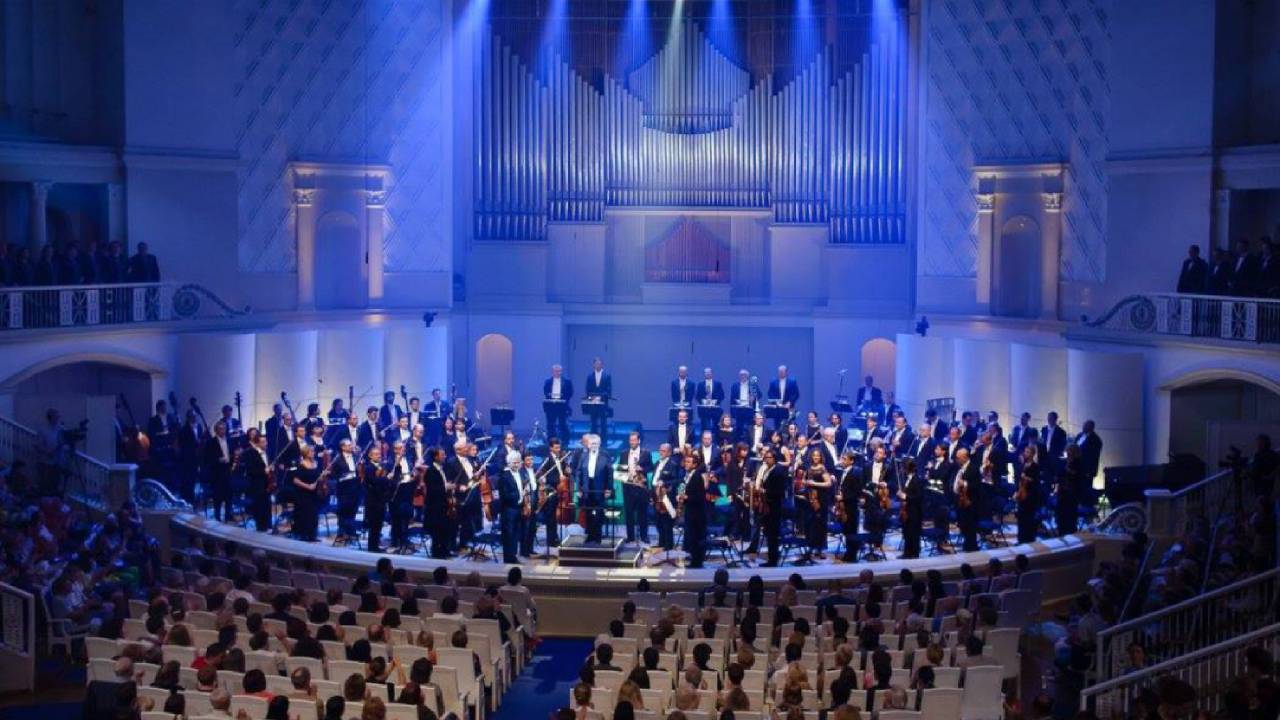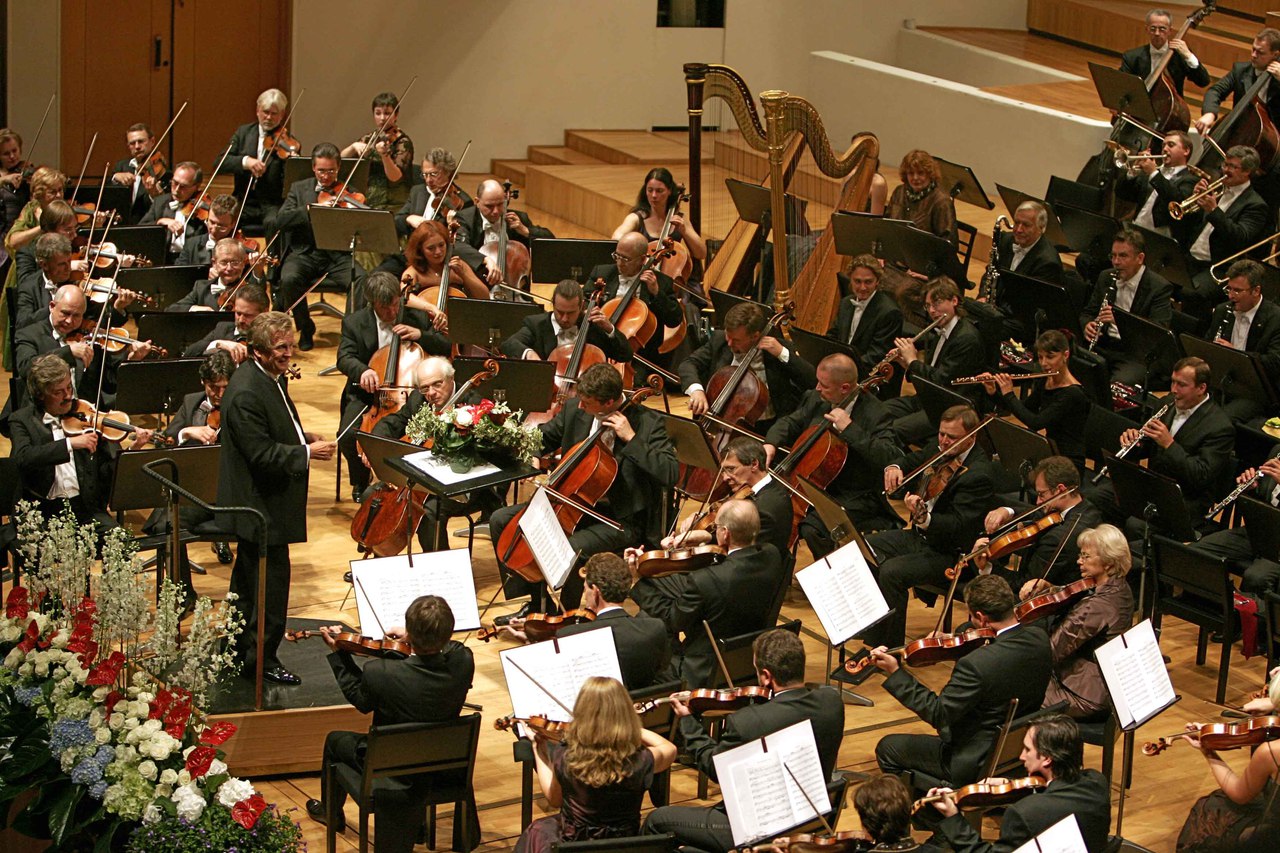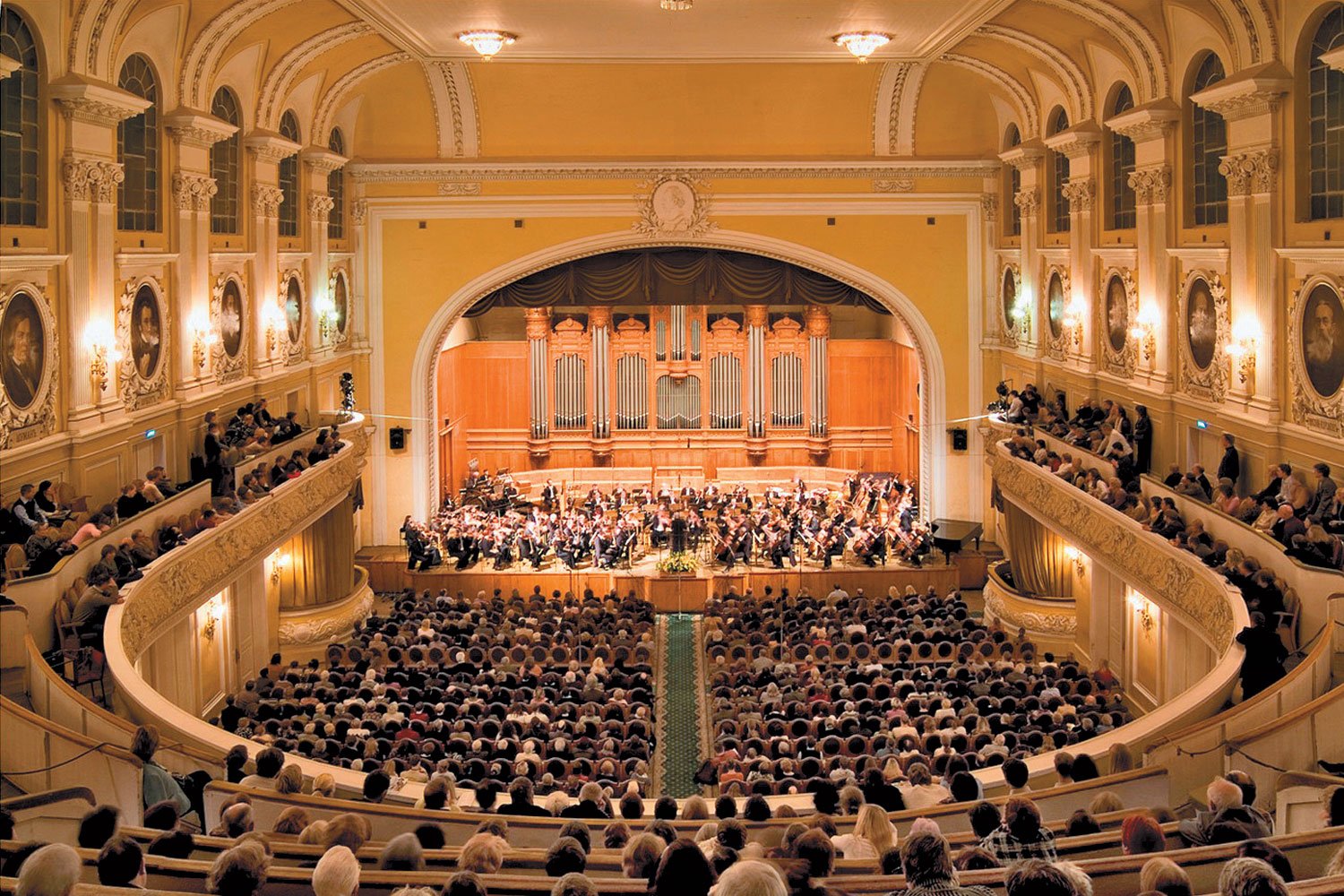Bolshoi Symphonic Orchestra
Internationally recognised as one of Russia’s most prestigious and versatile orchestras, the Moscow Radio Symphony Orchestra was founded in 1930. Until the dissolution of the Soviet Union, the orchestra was the official orchestra of the Soviet radio network.
Alexander Orlov became the orchestra’s first director in 1930 and is credited with developing a diverse and voluminous repertoire. From 1937 to the present, a series of outstanding directors have contributed to the orchestra’s distinctive artistic style and personality: Nikolay Glovanov from 1937—1953, Alexander Gauk from 1953—1961, and Gennady Rozhdestvensky from 1961—1974. In 1974, Vladimir Fedoseyev assumed leadership, and turned the orchestra into one of Russia’s most widely acclaimed ensembles.
Over the years, a distinguished group of composers, guest conductors and soloists have played an integral role in the development of the orchestra. Stokowski, Mravinsky, Cluytens, Sebastian, Abendrot, Feitelberg, Zecchi and Sanderling are among the artists who have led the ensemble. David Oistrakh, Leonid Kogan, Emil Gilels, Mirella Freni, Irina Arkhipova, Nikolai Ghiaurov, Mstislav Rostropovich, Viktor Tretiakov, Gidon Kremer, Yuri Bashmet, Oleg Maisenberg, Elisabeth Leonskaya and among the younger generation Maxim Vengerov, Vadim Repin and Evgeny Kissin have supported the orchestra from the outset of their musical careers.
In 1993 the orchestra was renamed by decree of the Russian Ministry of Culture and became theTchaikovsky Symphony Orchestra of Moscow Radio. Awarding the orchestra the name of this great Russian composer was a recognition of the orchestra’s role in promoting all symphonic repertoire written by Tchaikovsky — from chamber compositions to operas and cantatas.
The orchestra has given premieres of new works of such prominent composers as Shostakovich, Khachaturian, Miaskovsky, Prokofiev, Gliere, Sviridov, Boris Tchaikovsky and Gubaidulina. It also promoted works of the best composers from the former Soviet Union such as Taktakishvili, Melikov, Oganesyan, Balakauskas, Tormis and many others.
For over 30 years, the Tchaikovsky Symphony Orchestra of Moscow Radio, as one of the best orchestras in Russia, has been headed by Vladimir Fedoseyev. These years of alliance between the the orchestra and their chief conductor reflect what the Maestro has inherited from his predecessors. His interpretations are famous for their depth, true artistic passion, unusual emotional intensity, a great reflection of the national character of the music, a deep insight into composers’ conceptions. Vladimir Fedoseyev has created the specific style of the orchestra, a very individual signature which has brought highest accolades and international renown.
Breaking with the tradition of performing only Russian music abroad, Maestro Vladimir Fedoseyev and the Tchaikovsky Symphony Orchestra of Moscow Radio have begun in recent times to perform music by Beethoven, Brahms, Bruckner, Mahler, Wagner.
Vladimir Fedoseyev and the Moscow Radio Symphony Orchestra have recorded extensively for a variety of labels including Ariola, JVC, Musica, Philips, Pony Canyon, Sony Classical and Relief. Among the orchestra’s recordings released in many countries are its critically acclaimed renditions of Mussorgsky’s Boris Godunov, all of Tchaikosvky’s symphonies, all Brahms symphonies and all Shostakovich’s symphonies. The orchestra has also recorded a considerable amount of opera and ballet. Their recording of Rimsky Korsakov’s May Night was awarded the Gold Orpheus Prize of the French National Recording Academy. The Orchestra’s 75 year artistic life never stops even for a day. In 2003 the orchestra gave concerts throughout Great Britain, including London’s Royal Festival Hall, and at Vienna’s Musikverein, in spring of 2004 they toured Japan and China. In the season 2005—2006 the orchestra returning a 75th anniversary jubilee tour to Switzerland, Austria, Germany, France, Holland, Japan, Korea and China. Its anniversary programmes take place in major European concert halls and includes such works as Mahler’s 8th Symphony, Oratorio Pathetique by Sviridov, Shostakovich’s 4th and 8th Symphony.




